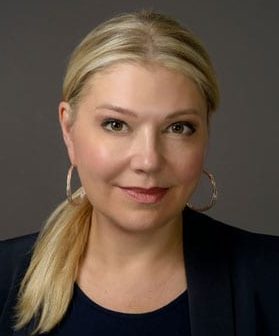Newpark Chief Executive, Melanie Purdey, explores the human impact of change and shares three tips to help advisers handle change…
Nigel Latta, a well-known psychologist and TV personality, describes our lives today as “dinosaur brains coping in a smartphone world.” Quite apt when you consider the evolution of time required to help humankind adapt to environmental changes.
The world in general – and the New Zealand financial services industry in particular – is undergoing an unprecedented trajectory of change. How are we going to cope when our brain’s ability to manage the stress associated with change is still relatively pre-historic?
It isn’t enough to just say “Change! Change your mind!” For most of us advisers dealing with uncertainty of income, career prospects, complete disruption of how we run our businesses with technology and the new regulations, and even family and health issues, to assume such a demanding push seems a bit glib at best.
On top of this are the real life demands of clients in need, and occasionally, clients in crisis and you’re the front line. Oh, and of course the demands this season brings with family expectations and further strain on the budget.
But as they say, the only certainty in life is change. So now what? (And I hate the three best tips approach but here I go anyway.)
- Put your oxygen mask on first
The last time you got on a plane, the flight attendants told you that in the event of an emergency, put your own oxygen mask on before helping others. Sounds logical if you don’t want to asphyxiate before looking after your loved ones.
We probably need to adopt that approach into our daily mental hygiene habits. I’ve always thought it sounded trite when people said “Look after yourself first or you’re no good to anyone.” But the wisdom inherent in going for a walk, pausing to listen to a tui or drinking more water to feel great is undeniable.
2. Stay connected
For some, the prospect of Christmas gatherings is a welcome thing. For others, it is the bane of their existence! Challenge yourself to spend at least a little time each week with someone you respect, love or even who challenges you to be the best version of yourself. (Your “frenemy?” Nah!)
Choose who you spend time with and be selective: People who douse your fire are out. People who fan the flames of your endeavours are in.
3. Give
This may sound contrary to Number 1 if you’re meant to look after yourself. That’s why this is third. Research shows that those who spend time focussing on someone else’s needs are often distracted from the pressures of their own, and dopamine levels rise as a result.
So many organisations seek input at Christmas – hospice, retirement homes (oh, the stories you will hear) charitable community services, SPCA. Find something that resonates for you and reach out.
“It’s important to remember that in spite of all the change, more things stay the same…”
After undergoing similar significant regulatory change in Australia, the suicide rate amongst financial advisers has risen to 11 times the national average. That outcome can be avoided here if we all take steps to keep ourselves – and each other – in a good headspace to cope with the change upon us. To do so will make you happier, more productive and generally a nicer human being to be with. A perfect selfishness.
And it’s important to remember that in spite of all the change, more things stay the same – you will continue to look after your clients, give them great advice and support them when it doesn’t go to plan. You will continue to understand the fundamentals of financial services and how to be part of this profession.
The main changes to how you do things from next year will be to enhance your professional standing as a financial adviser by having knowledge, competency and skill, running a well-managed business and reaching out to New Zealanders who really need you.
 Melanie Purdey is the CEO of Newpark and has served in the financial services industry in Canada and New Zealand for over 25 years. Her passion is helping financial advisers find the best version of themselves in order to deliver valuable advice to New Zealanders who desperately need to understand their options and make informed decisions. She is heavily invested in driving culture change within the organisations she’s worked with and believes the right mindset drives the best outcomes. Her husband, Jon, is also a non-aligned financial adviser so she understands well the challenges advisers face daily. Purdey comes from a competitive background as an ice skater, is an accomplished pianist and speaks Japanese fluently, having studied Economics and Politics at Nanzan University in Nagoya, Japan.
Melanie Purdey is the CEO of Newpark and has served in the financial services industry in Canada and New Zealand for over 25 years. Her passion is helping financial advisers find the best version of themselves in order to deliver valuable advice to New Zealanders who desperately need to understand their options and make informed decisions. She is heavily invested in driving culture change within the organisations she’s worked with and believes the right mindset drives the best outcomes. Her husband, Jon, is also a non-aligned financial adviser so she understands well the challenges advisers face daily. Purdey comes from a competitive background as an ice skater, is an accomplished pianist and speaks Japanese fluently, having studied Economics and Politics at Nanzan University in Nagoya, Japan.







